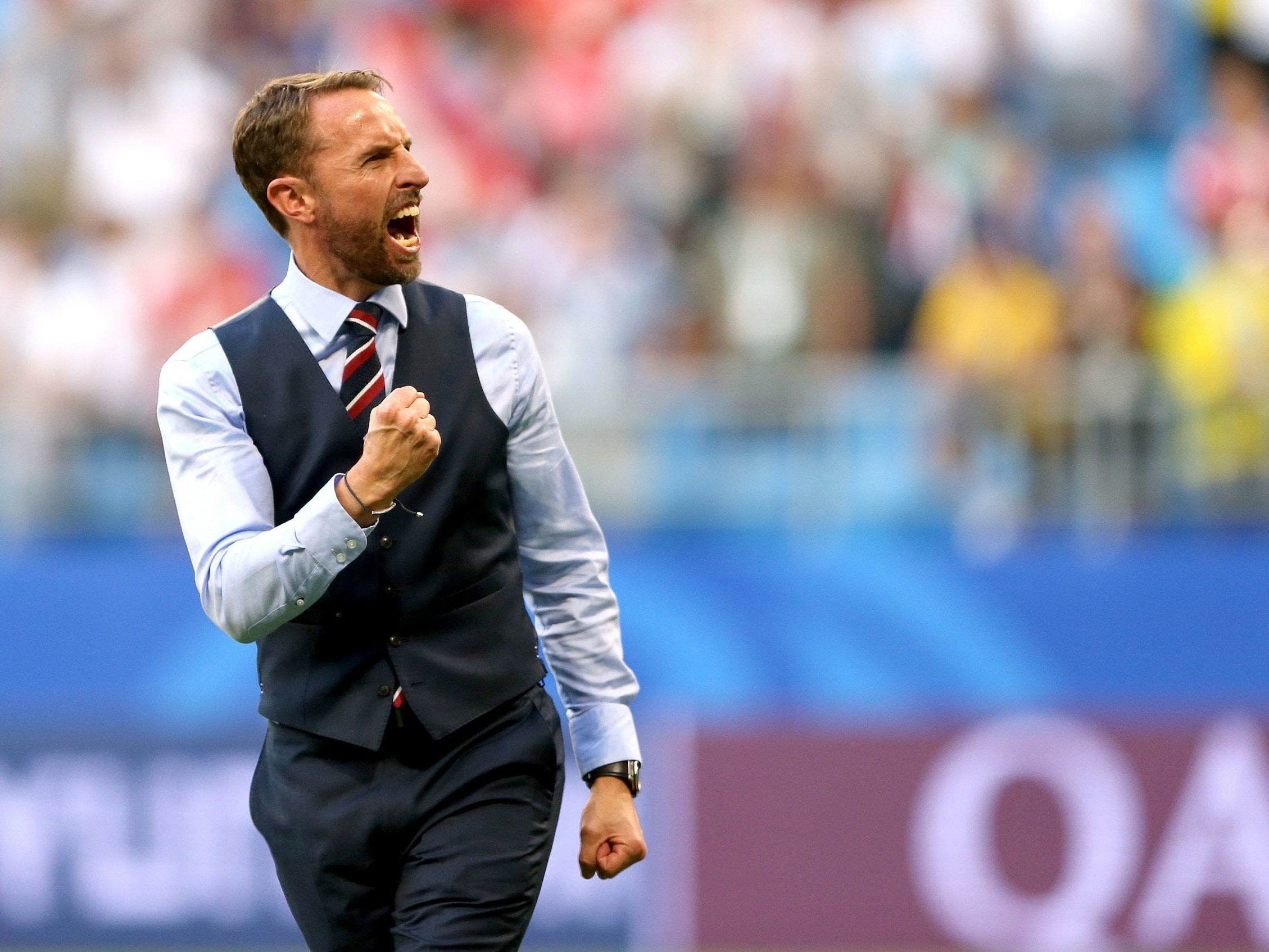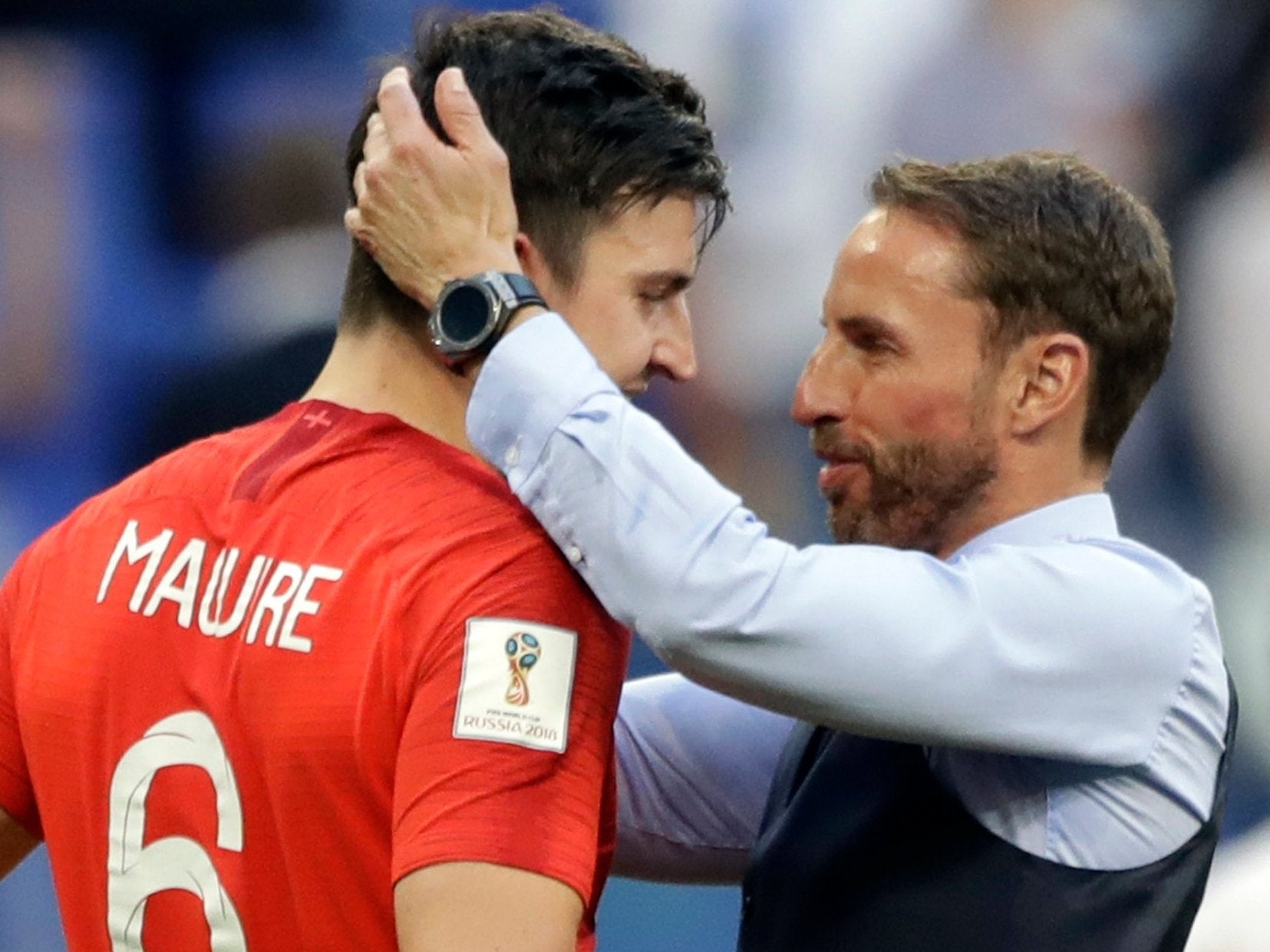Gareth Southgate’s clean break from England’s dismal past means Three Lions are finally free to write own their history
There has been no mention of Italia '90 or Euro '96 in the build-up to Croatia on Wednesday

Your support helps us to tell the story
From reproductive rights to climate change to Big Tech, The Independent is on the ground when the story is developing. Whether it's investigating the financials of Elon Musk's pro-Trump PAC or producing our latest documentary, 'The A Word', which shines a light on the American women fighting for reproductive rights, we know how important it is to parse out the facts from the messaging.
At such a critical moment in US history, we need reporters on the ground. Your donation allows us to keep sending journalists to speak to both sides of the story.
The Independent is trusted by Americans across the entire political spectrum. And unlike many other quality news outlets, we choose not to lock Americans out of our reporting and analysis with paywalls. We believe quality journalism should be available to everyone, paid for by those who can afford it.
Your support makes all the difference.We all know about the 1990 semi-final defeat, but that does not mean that knowledge is binding or even too helpful.
It is tempting to reach for examples, to look for the archetypes, going into England’s biggest football match in a generation. Who, at the Luzhniki, will play the role of Paul Gascoigne? Of Chris Waddle? Of Gary Lineker? Of Paul Parker?
But that is not how this England team sees it, and nor should the rest of us. If there has been one central message from Gareth Southgate and the players over this thrilling month it is that the past is a burden, and that obsessing about it can do more harm than good. This team wants to write its own history instead.
So when Southgate and Harry Kane were asked, in the aftermath of Saturday’s stroll against Sweden in Samara, what they could learn from the semi-final defeats of 1990 and 1996, how they could avoid the same on Wednesday night, the answer was: not much. And this from the manager and the captain, both vocal in their patriotism, both respectful of their past, but neither bound to follow it.
Southgate said he had “touched briefly” on the 1966 World Cup win with the players, and what it meant. Kane said it was an “inspiration” to have met Sir Geoff Hurst. But when asked about the importance of reaching those 1990 and 1996 semi-finals, and the modern lessons, Southgate admitted “it does not mean a lot now”.
Southgate will not be mentioning that night in Turin to his players before Wednesday, because who needs any extra motivation or distraction for a World Cup semi-final? “I don’t think I will need to,” he said. “I think they know what they want to do. They know they stand on a moment of history, and their desperate to do as well as they possibly can. They don’t need any motivation for this now. It’s all there.”

The story of Italia ‘90 is fascinating and has been brilliantly told, in Pete Davies’ ‘All Played Out’ and Simon Hart’s new ‘World In Motion’. But it is worth asking, in a football world unrecognisable from that one, how much today’s players could helpfully learn from a tournament that happened before eight of Saturday’s first XI were even born.
From an England team where nine of the semi-final starters played in an old First Division that was almost exclusively British, and did not have foreign players, foreign coaches or foreign ideas. Where only Chris Waddle at Marseille and Terry Butcher, one of four Rangers players, were playing in European competition, because of the Heysel ban, which ended that summer.

From a team whose approaches to recovery, rest and relaxation were so different, from the world of Fortnite and Instagram. Where Bryan Robson tore off a toe-nail trying to tip Gascogine off a bed after one night out drinking, and where Gascoigne himself had a secret bottle of Bailey’s he would slip into his coffee while relaxing by the pool in the afternoons. The night before the semi-final Gascoigne was up late playing tennis with other hotel guests, trying to burn off energy, before Bobby Robson stopped him.
Nearly 30 years on, the success of this side means the world to the 1990 team. You can hear that from Waddle welling up on the radio, or from reading Lineker’s tweets. Kane said he was “proud to make ex-players proud”, and that he was sure this summer was “bringing back memories” for them and for the 1996 team. “But look, we said we wanted to write our own history.”
That has been the message all summer. Southgate is often asked about learning lessons and following examples from the past. As if the England team were not sufficiently soaked through with their own history, but that one more dip into the well might be enough. Southgate’s response has often been that the record of the national team is not as good as we think it is, that the successes have been outweighed by the failures, and that it might be better to start afresh.
But this is English football, where we have so often grasped for the easiest explanation or the laziest solution wherever we can find it. Why try to understand why something does not work, or how it can be done better, when you can just sift the history as a substitute for understanding instead. There is no easier method than looking back into previous campaigns, finding little details that could be improved upon and gluing them together into something dressed up as a plan.
Southgate’s great insight has been to cut the cord with the past. He knows that English football history contains more bad than good, that it can weigh on the players, and that his job is to lift that weight. Note how he has not padded out his backroom staff with veterans of previous World Cups, but in Steve Holland, Allan Russell and Martyn Margetson found the best coaches for the job. Or how, by taking a young squad, with no Wayne Rooney or Joe Hart, he has no-one left from the dismal 2010 campaign in South Africa. Sometimes the toxic bathwater has to go out for the good of the baby.
Far better just to start again from first principles. What is the England team meant to mean? How does he want them to play? What type of player does he want? How can he make England enjoyable again?
When asked again on Saturday night about putting the memories of Turin 1990 to bed, Southgate responded that he just wanted the players to have fun. “I think we are just enjoying the journey,” he said. “That has definitely helped us. Everything we have done has been based on enjoyment. How far can we go? Let’s push the boundaries. Let’s create our own history, and they are continuing to do that all of the time.”
When Southgate spoke in Volgograd on the eve of the Tunisia game, his call for a blank slate for this team almost sounded naive. “You learn from the past, but this team shouldn’t be burdened with it,” he said. “They’re a fresh group. The future is all ahead of them. The players and opportunities of the past have gone.” Three weeks and five games later those words sound far-sighted and resonant. And as England prepare to write their next piece of history, they do not need to be worried by the ghosts of the past.
Join our commenting forum
Join thought-provoking conversations, follow other Independent readers and see their replies
Comments